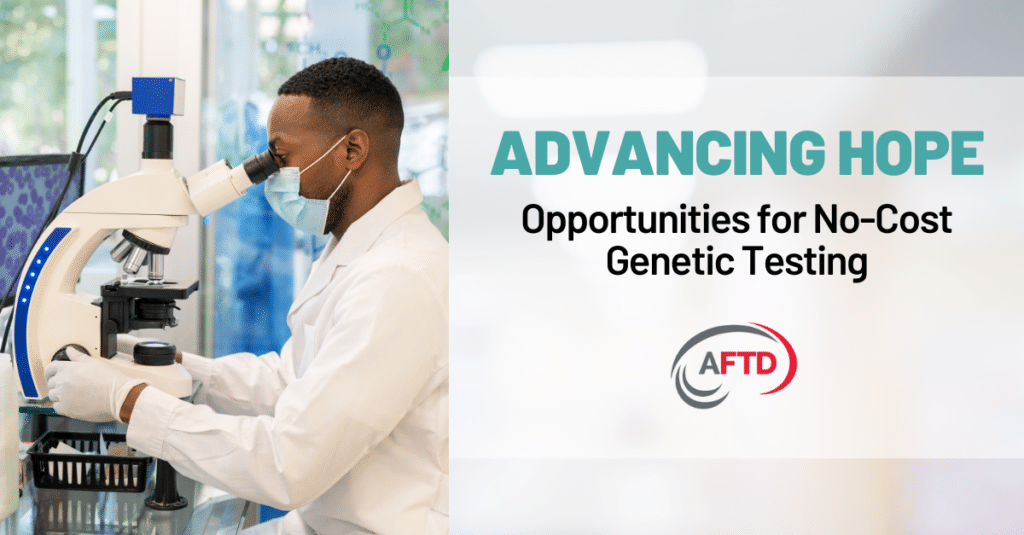Zwiększanie nadziei: możliwości bezpłatnych testów genetycznych

There are many reasons people may consider genetic testing. Testing can help determine your eligibility for clinical trials of experimental medicines that address the genetic causes of FTD. It can also inform financial and family planning, and help one understand their own risk for developing FTD. But after choosing to pursue genetic testing, it can be frustrating to learn that the cost is high and/or is not covered by insurance.
Sponsored testing programs offer a unique opportunity to access no-cost genetic testing. Sponsored programs are typically collaborations between genetic testing labs and partnering biopharmaceutical companies or advocacy groups, which cover the cost of testing. Their goals can vary. Often, they aim to ensure faster, more accurate diagnoses; to raise awareness for specific conditions; and to connect individuals with research or therapeutic opportunities. The partnering groups also benefit by increasing the number of persons accurately diagnosed, better understanding the prevalence of the condition, and identifying individuals who may be candidates for an established treatment or a clinical trial.
AFTD recommends that everyone speaks to a genetic counselor before they go through genetic testing. Fortunately, most sponsored testing programs include the cost of pre- and post-test genetic counseling.
Usually, no identifiable personal data is shared with the partnering groups unless you provide specific written consent. In some partnership programs, the sponsor may contact the ordering healthcare provider to discuss potential research or treatment opportunities for a person with positive results.
Just as genetic tests vary from lab to lab, sponsored programs also vary and often evolve. AFTD offers information on no-cost genetic testing and currently available sponsored programs (scroll to the bottom of the page).
The genetic testing landscape is dynamic. New sponsored testing programs become available, and some partnerships end or change in scope. A genetic counselor can help you navigate the options available and help you choose the best path forward for you.
To learn more about the genetics of FTD please visit our website or contact the AFTD HelpLine at 1-866-507-7222 or info@theaftd.org.
Według kategorii
Nasze biuletyny
Bądź na bieżąco
Zarejestruj się już teraz i bądź na bieżąco dzięki naszemu biuletynowi, powiadomieniom o wydarzeniach i nie tylko…
